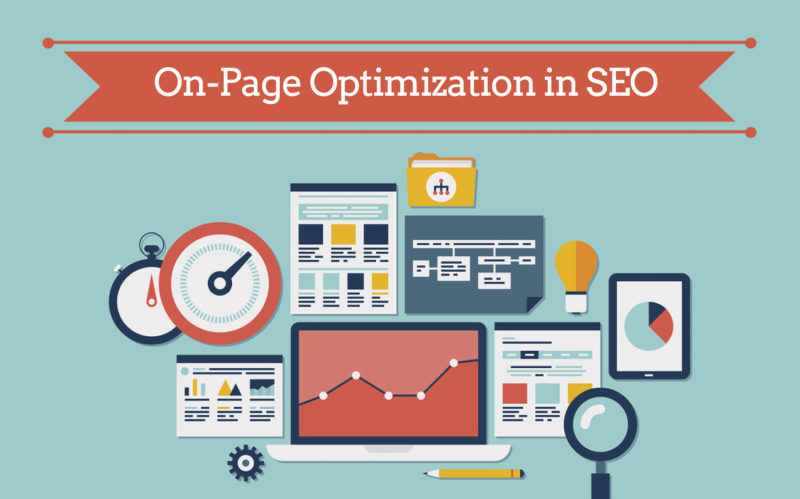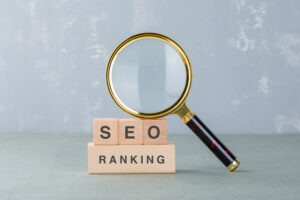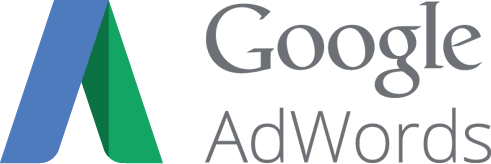Having your page or site ranked on the first page of search results is the goal of every site owner. The search engines know the importance of this ranking as well, so they continually change the qualifications so that only the best sites get this ranking. As of 2020, on-page SEO is the leading factor in page placement.
What Is On-Page SEO and Why Is It So Important?
On-page optimization has become more important than site optimization as a while because of the way that people search for information. People want specific information that is easily accessible. They don’t just want to be taken to a site and then have to search for the relevant info that is located somewhere within the site.
Google is rewarding websites that provide relevant and meaningful information for the keywords searched by placing them on the first page of results. With this in mind, webmasters should strive to get each one of their blog posts or information pages to have the best optimization so that their site can rank first in several different categories.
Ten Must-Do Tips For The Ultimate Optimization
- Master the Meta TitleYou will want to make sure that the title of your page is in H1 brackets and that the characters are 65 or less. This ensures that the web crawlers understand your page. You want to use your main keyword within this meta title. However, do not use the main keyword in the first two words of that title. Do not use H1 titles anywhere else on your page.
- Pretty Permalink StructureYou will want to make sure that your permalink is correct and that it contains your main keyword. Again, this helps the bots find your site easier. Also, you want to avoid any special characters in the link. Stick to the “pretty” permalink structure that uses dashes to distinguish between words as per the following example:https://www.mypage.com/permalink-title-with-dashes
- Do Not Overuse HeadingsYou will want to use H2 and H3 headings throughout your post to help break up content and make it easier to read. However, Google will penalize sites that have too many headers within one article. The reason for this: too much different information. Google is searching for information that is expansive without covering too many topics at once.
- Word Count and Keyword DensityJust a few years ago, it was believed that the average blog post should be 300-400 words. It was believed that people were only scanning webpages for information and not researching topics in depth. Times have changed. Google is now rewarding sites with higher placement if their posts average 1,000 to 1,300 words. They believe this is a sufficient amount of words to cover a deep meaning on any subject. Make sure that keyword density does not exceed 1.5 percent of the total word count.
- Pictures, Videos, and GraphSites that have pictures, videos, and graphs on them will rank higher than other sites. However, it is important that when you place these images on your site that you:
- Compress the files for faster loading. Slow loading pages rank lower.
- Put the keyword into the name of your image file so that it can be found when someone conducts an image search.
- If possible, use a caching plug-in to speed loading.
- Social Media ButtonsYou will want to have social sharing buttons located on your page that are easy to find and use. Make sure that the links work. Google will rank your site higher if it has been shared on social media.
- Meta TagsMake sure that each of your pages has relevant meta tags that are current and contain your main keyword. Meta keywords are no longer relevant to Google. However, you can still add them if you are concerned with your ranking on other search engines.
- Internal LinksHaving at least one internal link that is relevant to the topic you are writing about is very beneficial to your site ranking. Google views interns links as a sign that you have more relevant information to offer the visitor. However, you are encouraged to make sure that the page you link to has already been optimized for the best results.
- External LinksWhen you create content and link to a credible external source, Google views this as a service to your visitors. They see that you are trying to provide a complete and informative experience to site visitors by providing them an option for more information. It is crucial to make sure that the external links you post are to trusted sites. This gives your page more credibility.
- Content Remains KingFor the best on-page SEO, you have to remember that Content is Still King. The content of your page must be informational, engaging, and something that someone wants to say and read. You cannot fill your content with fluff and stuff a bunch of keywords into it and hope that will cause your site to rank higher.Your content must provide something of value to the customer. When you are creating content, engage the audience by asking a question or presenting a problem, and then provide an answer or solution. The longer you can keep a person on your site, the higher your site will rank.
One Final Tip
If you are using a program like WordPress for your site, make sure that you take advantage of all of the new plug-ins that are available. Most of these optimization tips can be done for you automatically by attaching a plug-in to your site. For those not using WordPress, there are many tools that you can use that will provide similar help.
Page optimization does not have to be difficult. You need to take the time to meet all of these guidelines. Once you have done it a few times, it will become like an old habit, and each new page you create will automatically have all the right tools or prime optimization.











